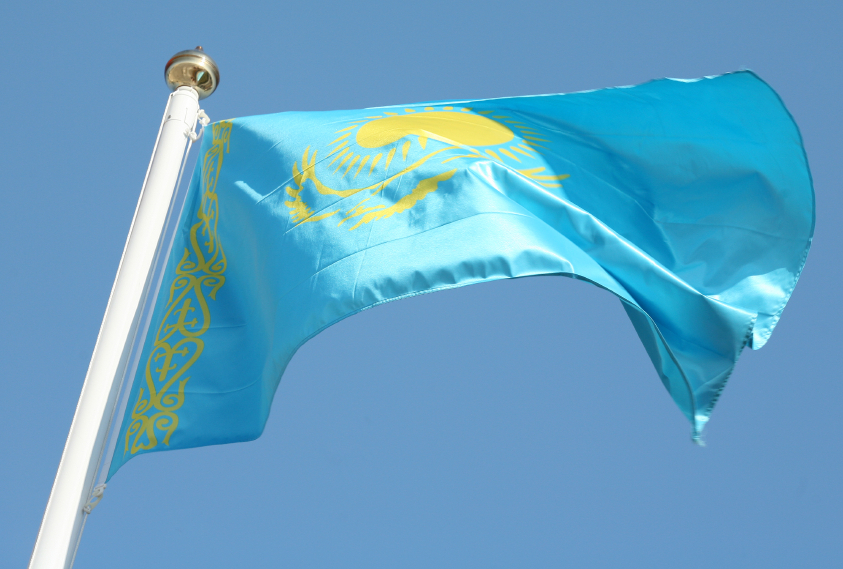Kazakhstan’s recently announced official development assistance (ODA) programme and the agency that is being set up to oversee it, KazAID, signals an evolutionary step in the country’s role in the region and the world, and as such is a matter of interest to the Kazakhstan’s governmental and nongovernmental partners. The Astana Times spoke with partners from the United States and the UN about what KazAID will mean for the country and the region.
 Michael S. Klecheski, deputy chief of mission of the United States in Kazakhstan
Michael S. Klecheski, deputy chief of mission of the United States in Kazakhstan
What do you think of the establishment of KazAID and its importance?
First of all, let me say that the U.S. government is very pleased that Kazakhstan is going to establish this agency. From our perspective, it is a sign of a new step in Kazakhstan’s development, because Kazakhstan is now taking another important role in the world. Needless to say, that process of approval takes some time and the project still has to pass a few more steps. However, we look forward to partnering with this organisation. USAID, which is the United States development agency, has been very supportive of the KazAID initiative and looks forward to working closely with KazAID in the future. It’s something we’re really excited about.
In your opinion, what type of aid should be provided?
As Minister Erlan Idrissov [Minister of Foreign Affairs of Kazakhstan] said, it requires doing some proper analyses, as well as talking to countries that might be beneficiaries of this aid. Also, it would be beneficial to talk to a partner with whom KazAID will be working. There are lots of challenges in this region, such as economic issues, water issues, connectivity issues, et cetera. It will be good to have a partner like KazAID when it is officially formed.
What are your expectations from KazAID?
We expect it to be terrific partners; however, organisations like these need time for development. Actually, our expectations are very high; we are very excited and believe that soon, it will become an effectively functioning organisation that will grow with time.
Jun Kukita, chief representative of UNICEF in Kazakhstan
How would you evaluate the establishment of KazAID?
It is a very important development for Kazakhstan, particularly in the globalised world, where everything goes beyond a country’s border.
Let me give you a few examples. The Ebola virus that is currently affecting many countries, especially in Western Africa – if international societies, including Kazakhstan, do not respond on a timely basis with sufficient resources, it will paralyse the whole world. The same for climate change: it will also come to Kazakhstan, and one country is not able solve such a problem without the help of others. Collaboration is important. As Minister Idrissov said, this is a way of insuring your security and prosperity.
Today, Kazakhstan can share a lot with the world. For example, the country reduced its child mortality and is now working on many more complex issues, such as suicide or violence, which are still a headache for many countries. These innovations and reforms Kazakhstan can show to the world or share with the world. And having these channels is very important.
Also, Kazakhstan is moving forward with the Kazakhstan 2050 Strategy and aiming at becoming one of the top 30 countries in the world. Mainly, these are OECD [Organisation for Economic Cooperation and Development] countries. So, being a top, developed nation carries the responsibility and privilege to share wealth, resources, knowledge and information with others.
In my view, Kazakhstan can manage to cope with both internal and external issues.
Kazakhstan’s aid will mostly go to its neighbours. What do you think about the decision to primarily support the Central Asian region?
Since Kazakhstan is a part of Central Asia, the centre of Eurasia, starting with the neighbours is a natural and probably more effective way. Firstly, it is easier for neighbours to communicate with each other. Secondly, they share a common history and have common systems. As a result, prosperity and stability among your neighbours will immediately affect your country.
Willem Muhren, information management officer of the UN Office for the Coordination of Humanitarian Affairs (OCHA)
What do you think about the establishment of the KazAID agency in Kazakhstan?
It is a very important step for Kazakhstan, as the first country in Central Asia to have a national system of ODA. The country’s support to the region will help build a more stable and secure environment.
In previous years, Kazakhstan had provided significant international humanitarian assistance, so we hope that the establishment of the KazAID agency will give better direction, better structure to Kazakhstan’s humanitarian activities in the future.


